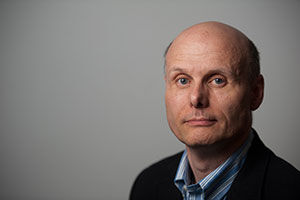University News Last updated 17 July 2014

A law expert from Birmingham City University believes that campaigners will not stop when it comes to fighting for a change in the law on assisted dying.
Senior Lecturer in Law and Medical Ethics, Timothy James argues that "campaigners are not prepared to take 'no' for an answer when it comes to changing the law and any law will do."
Peers will debate former Labour Lord Chancellor Lord Falconer's Bill on assisted dying in the House of Lords tomorrow (Friday 18 July) when it comes before them for a second reading.
Timothy argues: "The very important debate on assisted dying is poorly served when the press resorts to headlines using phrases like "death squads".
"There has been a concerted campaign, driven by organisations like 'Dignity in Dying', to change the law. This has been carried out in parliament, by bills like Lord Joffe's Bill which was defeated in 2012, and in the courts by cases such as Tony Nicklinson's. They have been consistently unsuccessful, but are not prepared to take 'no' for an answer."
The new Bill proposes allowing doctors to prescribe a lethal dose to terminally ill patients judged to have less than six months to live, but as Timothy explains, "this Bill would have been of no use to Diane Pretty, Debbie Purdey or Tony Nicklinson, none of whom was expected to die within six months, which is what the Bill requires for a lethal injection."
"However, what the campaigners want is to get a law - any law - on the statute book which permits assisted suicide. Once this is achieved, it will be possible to argue that the limitations on the law discriminate against other patients, so the law will be extended.
"It is sincerely hoped that the House of Lords considers this issue with the same care they did the last time, and reach the same conclusion."
Find out more about courses in law at Birmingham City University